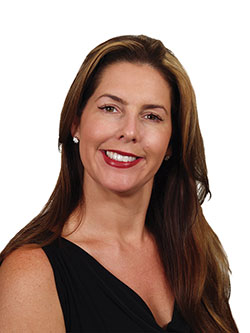How this female entrepreneur created several successful businesses and manages work-life balance.
 Stacey Whidden knows a lot about starting a business — because she's started six. She founded her first company in her 20s and currently manages three companies in the health and workers' compensation insurance industries with nearly 100 employees altogether. One company she sold several years ago is now part of a company worth $3.3 billion. Whidden, a client of Regions Private Wealth Management in Tampa, Florida, recently spoke with Insights.
Stacey Whidden knows a lot about starting a business — because she's started six. She founded her first company in her 20s and currently manages three companies in the health and workers' compensation insurance industries with nearly 100 employees altogether. One company she sold several years ago is now part of a company worth $3.3 billion. Whidden, a client of Regions Private Wealth Management in Tampa, Florida, recently spoke with Insights.
Q: What attracted you to entrepreneurship?
Whidden: I've always been a creative person who enjoys making things from scratch. I didn't always know I was going to be an entrepreneur. But in my first job working for a healthcare company after college, I realized I was really good at developing things and leading people. I started my first business because I learned there were so many opportunities in healthcare and insurance to do things better.
Q: Studies have shown far more women are starting businesses today than 10 or 20 years ago. Are you surprised?
Whidden: No. Women are tired of getting stuck on the corporate ladder and their wallets not being as fat as their male counterparts. Women are natural problem solvers, so they start a business to fix problems and to control their own schedules and income. I think we need to do more to support female entrepreneurs and help them grow their businesses. When I started my first company, there were very few other women entrepreneurs to give me advice.
Q: Have you discovered any challenges personally to being a female entrepreneur?
Whidden: When I started Express Dental Care, I was 27 and most of my customers were middle-aged men. I noticed I could get more attention and schedule more appointments by calling myself sales director versus CEO. So I listed "national sales director" on my business cards. Of course, people eventually learned I was the owner, but it was interesting how my title affected their perception.
Q: You have a five-year-old daughter. How do you run all these businesses and manage your personal life?
Whidden: I always tell people I'm not a juggler; I'm more of a baseball player. I've learned you have to have a great team supporting you both in the office and at home. Another female entrepreneur also taught me an important rule. One day I was upset because I was missing my then-two-year-old daughter's Easter bonnet parade at school. This woman told me she always prioritizes events based on who will remember most that she attended them. My daughter probably can't recall I wasn't at her parade, but she will certainly remember if I'm not at an event when she's 10. On the other hand, nobody will care if I show up a little late for a conference. So I live by that rule now.
Q: What advice will you give your daughter about her career?
Whidden: She's a natural performer and leader. I tell her every day that she can be anything she wants — she just needs to be a good person. When I started my business, I worked really hard without receiving any money from anyone. I was able to build my company and keep my integrity. We live in a great country and anyone can be anything they want. If you keep your eye on the ball, you'll accomplish your goals.










